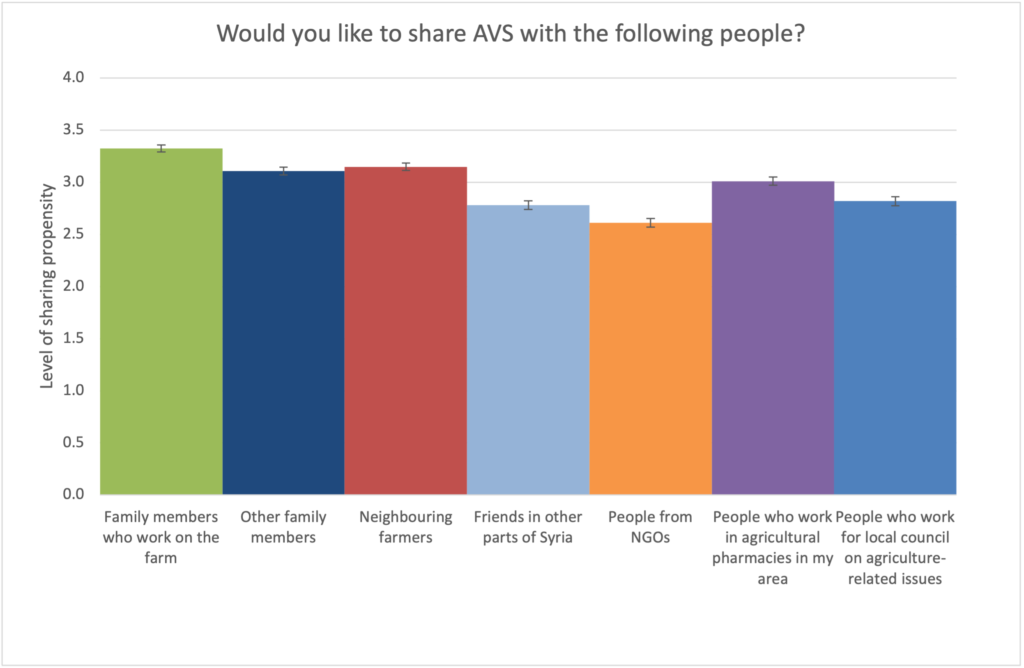On this page you can read highlights from our survey in Northwest Syria in April 2021. These findings were presented at the final workshop on 28 July 2021.
When we cross-tabulated farm ownership with education level we were surprised to find that ownership does not correlate with education. In fact, those with only basic education constitute the largest group of people owning the farms they work on. Owning a farm in another part of Syria and being internally displaced because of the conflict does not account for this correlation. However, the high number (32.7%) of university degree holders who were in our agricultural survey catchment area who describe themselves as ‘not working agriculture right now’ might indicate that those with more education are pivoting out of farming into occupations less impacted by the conflict.
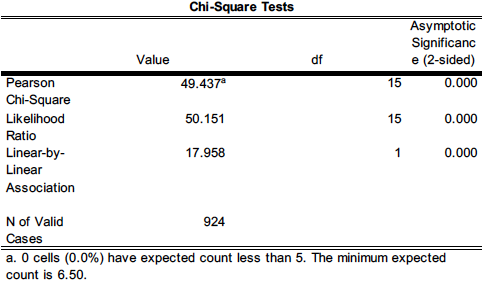

Device Owned
| Frequency | Valid Percent | |
|---|---|---|
| Smartphone | 723 | 77.5 |
| Other mobile phone | 128 | 13.7 |
| Tablet | 52 | 5.6 |
| Laptop | 111 | 11.9 |
| Desktop | 25 | 2.7 |
Other mobile phone
| Frequency | Valid Percent | Cumulative Percent | |
|---|---|---|---|
| No | 805 | 86.3 | 86.3 |
| Yes | 128 | 13.7 | 100.0 |
| Total | 933 | 100.0 |
Laptop
| Frequency | Valid Percent | Cumulative Percent | |
|---|---|---|---|
| No | 822 | 88.1 | 88.1 |
| Yes | 111 | 11.9 | 100.0 |
| Total | 933 | 100.0 |
As is consistent with other surveys that have looked at technology ownership in the developing world (Pew 2019), our survey of conflict-zone technology ownership showed an ownership level of smartphones (77.5%) which defies many stereotypes.
Smartphone
| Frequency | Valid Percent | Cumulative Percent | |
|---|---|---|---|
| No | 210 | 22.5 | 22.5 |
| Yes | 723 | 77.5 | 100.0 |
| Total | 933 | 100.0 |
Desktop
| Frequency | Vaid Percent | Cumulative Percent | |
|---|---|---|---|
| No | 908 | 97.3 | 97.3 |
| Yes | 25 | 2.7 | 100.0 |
| Total | 933 | 100.0 |
General social media usage reported by our respondents is much higher than anticipated. That WhatsApp was used in part to source respondents might be a factor.
Use Social Media
| Frequency | Valid Percent | Cumulative Percent | |
|---|---|---|---|
| Yes | 868 | 83.5 | 93.5 |
| No | 60 | 6.5 | 100.0 |
| Total | 928 | 100.0 |
Of our survey respondents who used social media at all, WhatsApp and Facebook were clearly dominant. This is useful information in guiding the promotion of future AVS episodes and similar related agricultural media undertakings in Northwest Syria.
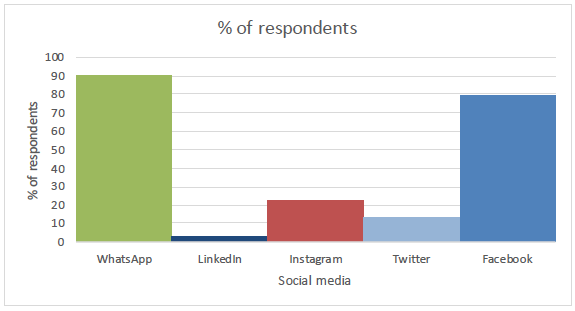
| Social Media | % of respondents |
|---|---|
| 90.21 | |
| 2.88 | |
| 22.7 | |
| 13.36 | |
| 79.84 |
The use of social media among our respondents skewed mainly towards uses of communications that were personal rather than business or institutional in nature. The 3% of our social media-using respondents who use LinkedIn seem to use it heavily for all purposes.
| Social Media | Communicate with family and friends abroad | Communicate with local friends and family | Communicate for business and work | Communicate with institutions and government |
|---|---|---|---|---|
| 77.05 | 84.22 | 51.5 | 22.95 | |
| 79.17 | 91.67 | 91.67 | 50 | |
| 89.69 | 84.54 | 59.28 | 31.44 | |
| 90.27 | 87.61 | 74.34 | 35.4 | |
| 80.18 | 82.38 | 52.13 | 23.64 |
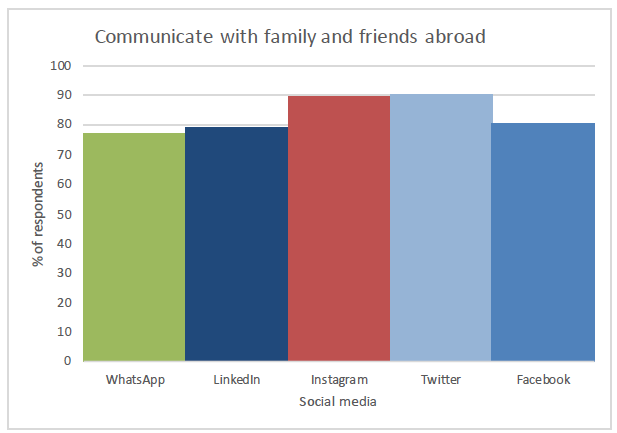
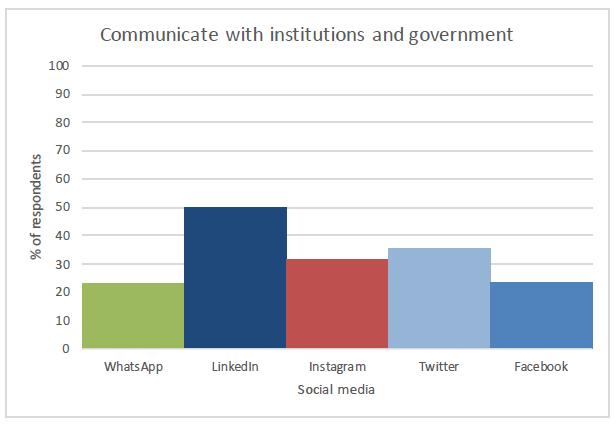
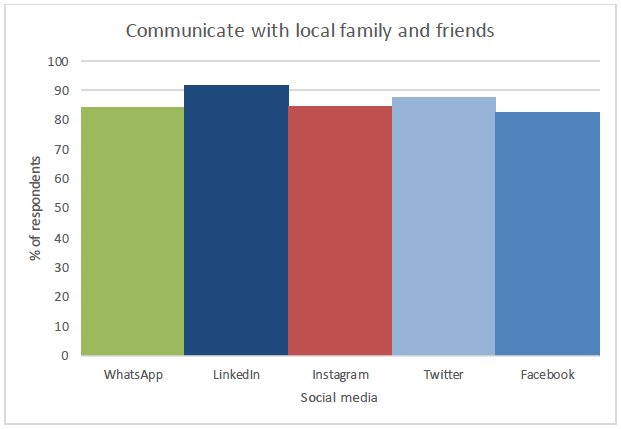
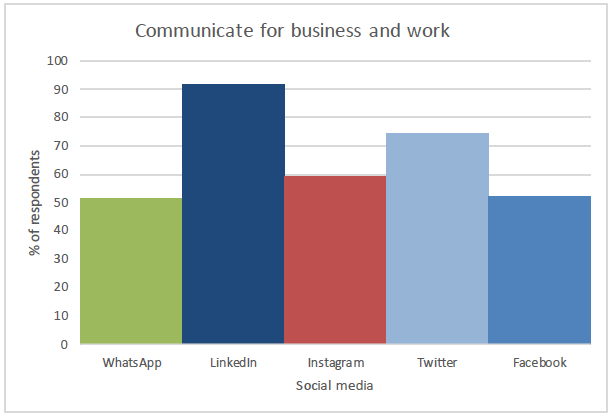
| Purpose of use: local news | Purpose of use: national/ international news | Purpose of use: information about agricultural produce | Purpose of use: learn new things and explore new ideas | Purpose of use: events | Purpose of use: hobbies | |
|---|---|---|---|---|---|---|
| 82.44 | 49.15 | 60.08 | 52.8 | 30.69 | 38.88 | |
| 96 | 72 | 80 | 68 | 64 | 76 | |
| 88.78 | 55.61 | 56.63 | 69.9 | 49.49 | 61.22 | |
| 94.83 | 66.83 | 62.93 | 56.03 | 47.41 | 50 | |
| 84.94 | 50.29 | 60.23 | 54.24 | 30.7 | 38.89 |
When searching for material on social media, the propensity across all platforms was clearly on local news. When cross-referenced with responses to other survey questions about social media use for communication (which showed a propensity to use it to connect with friends and family), a picture of general social media use emerges focused on community and personal connection rather than on national or global concerns.
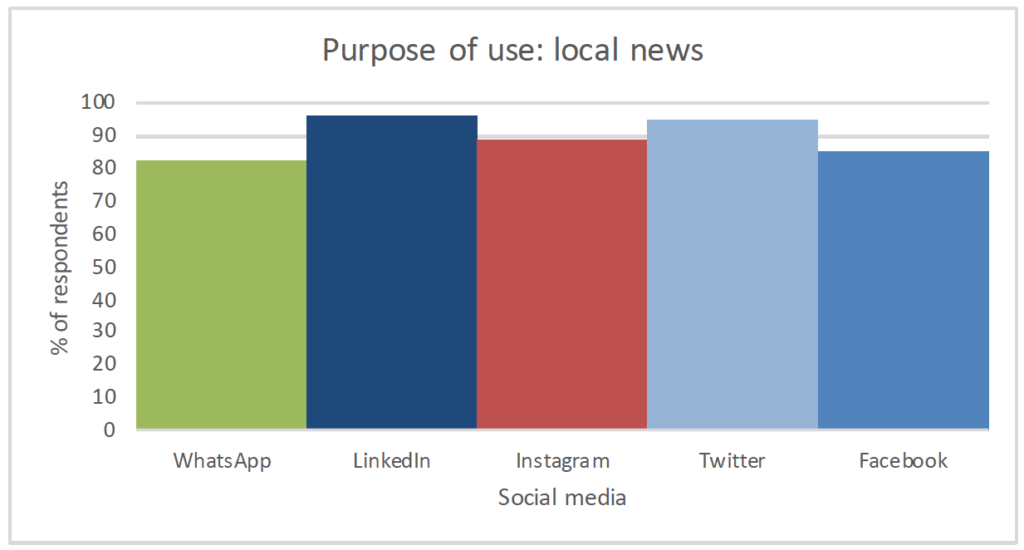
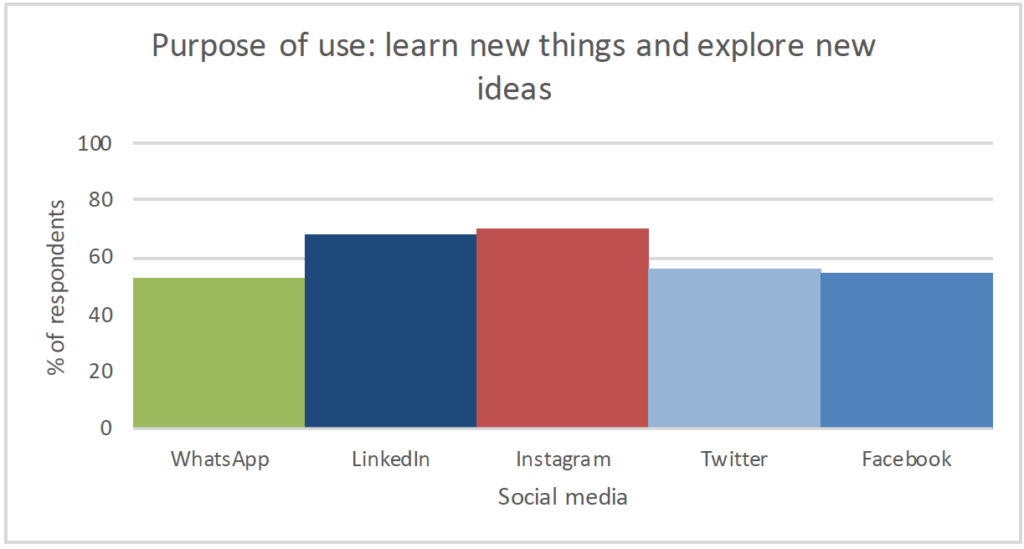
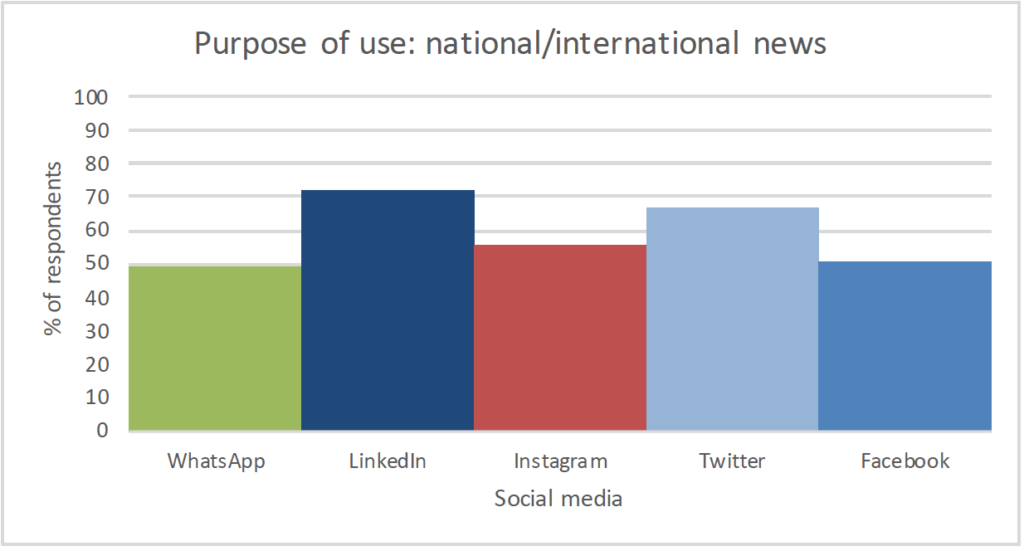
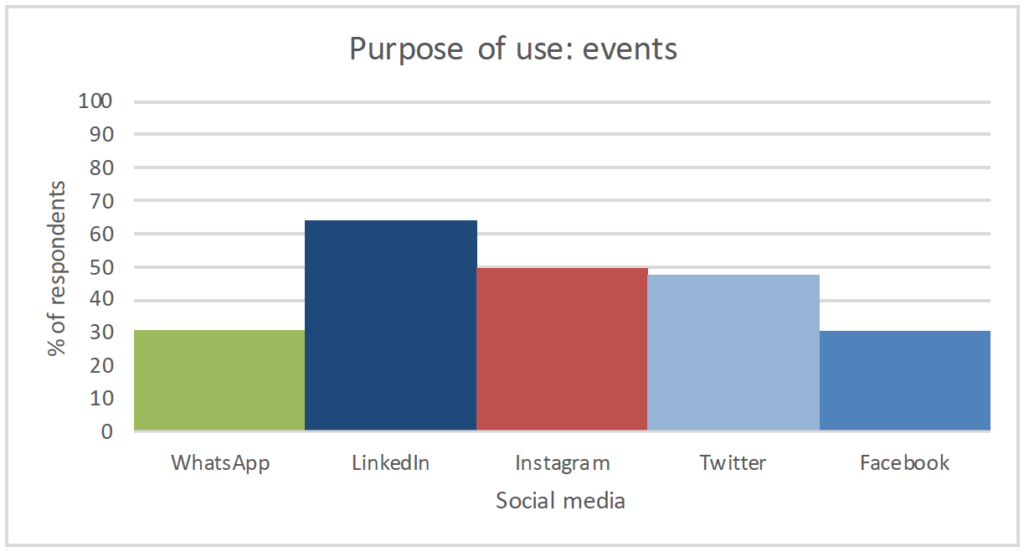
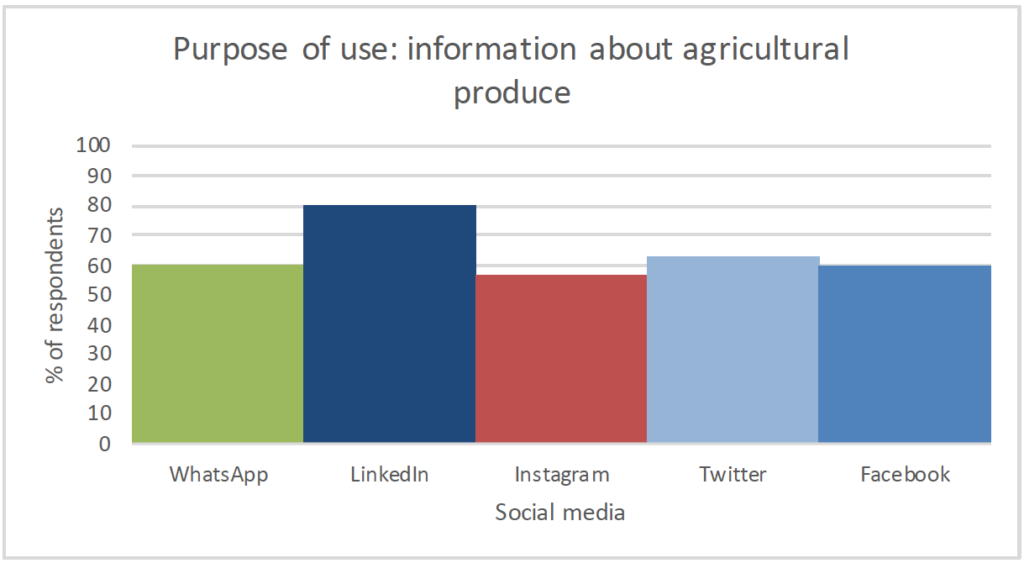
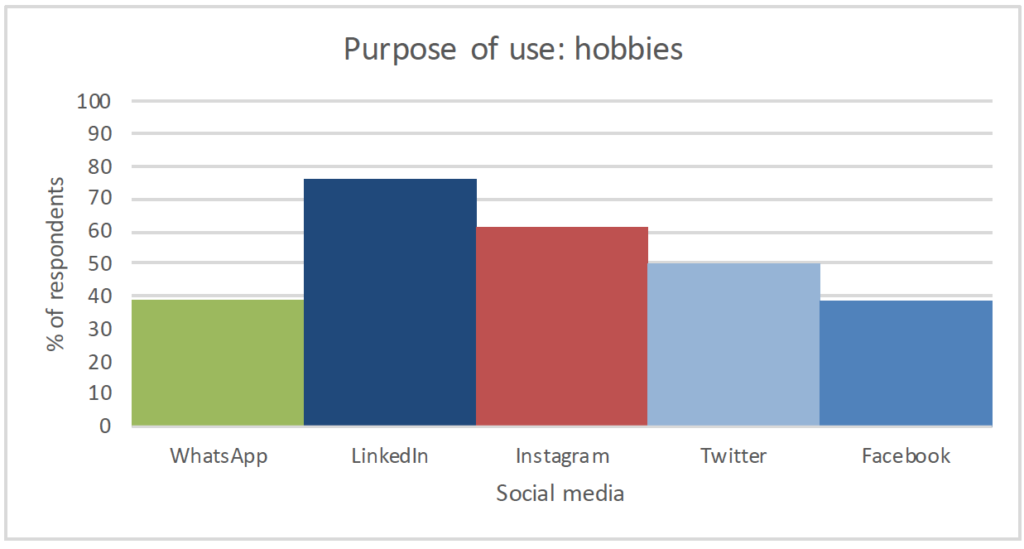
After much training on effective podcasting modes of communication and careful consideration of the sound of the episodes, the AVS production team appears to have found the sweet spot in terms of programme tone with 64% of respondents saying it was just right and only 16% describing it as ‘formal’. This gives an indication of tweaks in tone for future iterations of AVS.
| Frequency | Valid Percent | Cumulative Percent | |
|---|---|---|---|
| Too Formal | 70 | 7.7 | 7.7 |
| Formal | 146 | 16.0 | 23.7 |
| Just right | 587 | 64.4 | 88.0 |
| Informal | 79 | 8.7 | 96.7 |
| Too informal | 30 | 3.3 | 100.0 |
| Total | 912 | 100.0 |
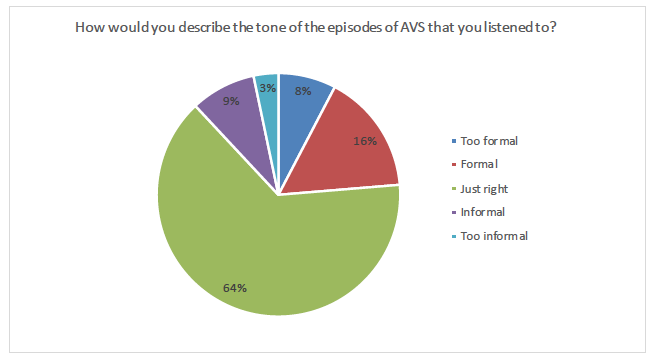
When we canvassed our respondents on potential topics for future AVS episodes sustainable farming practices and Syrian food were the most popular, closely followed by new financial opportunities for their activities. The response to the sustainability option is promising–even with the challenges of the conflict and displacement, an awareness of the economic and ecological long-term imperatives of sustainability is present among these farmers.
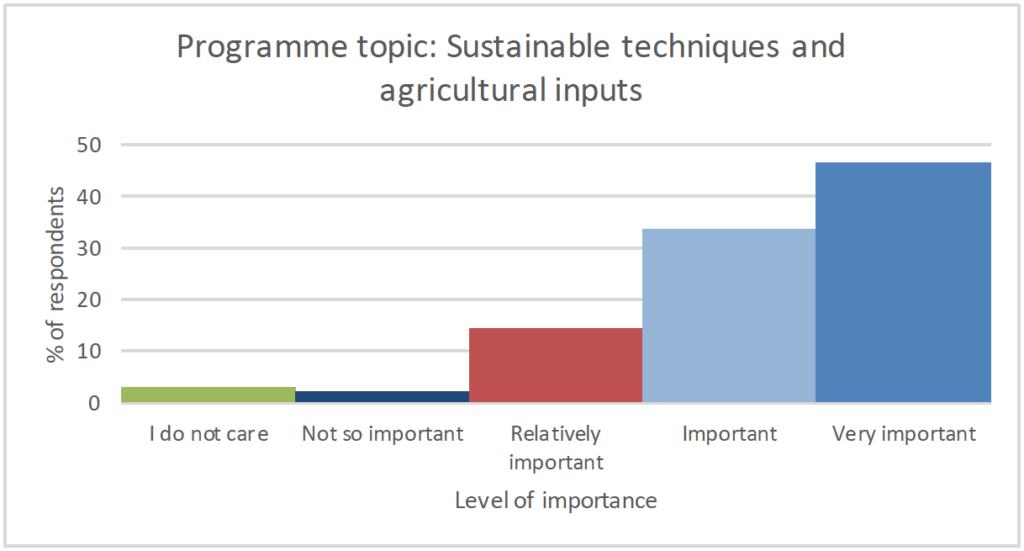
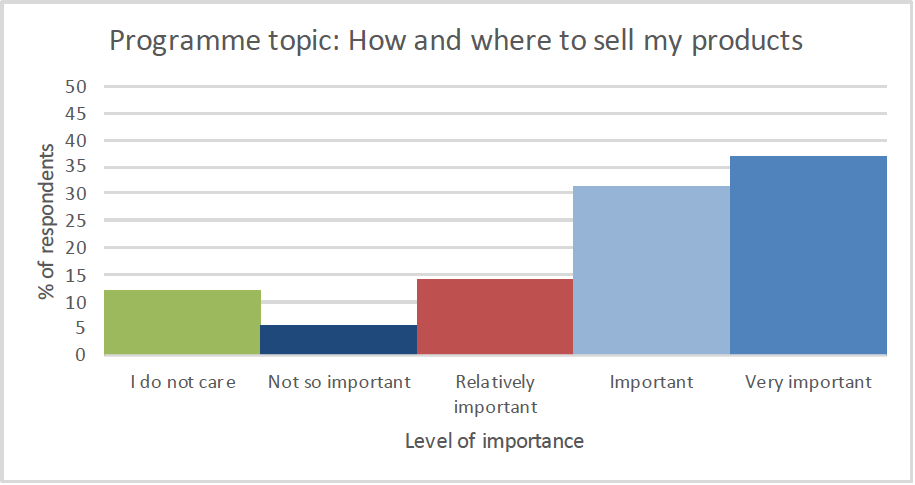
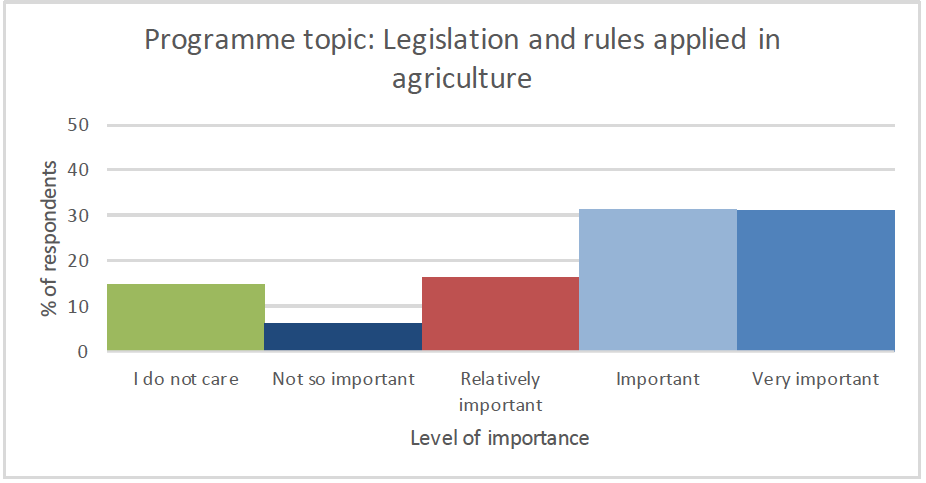
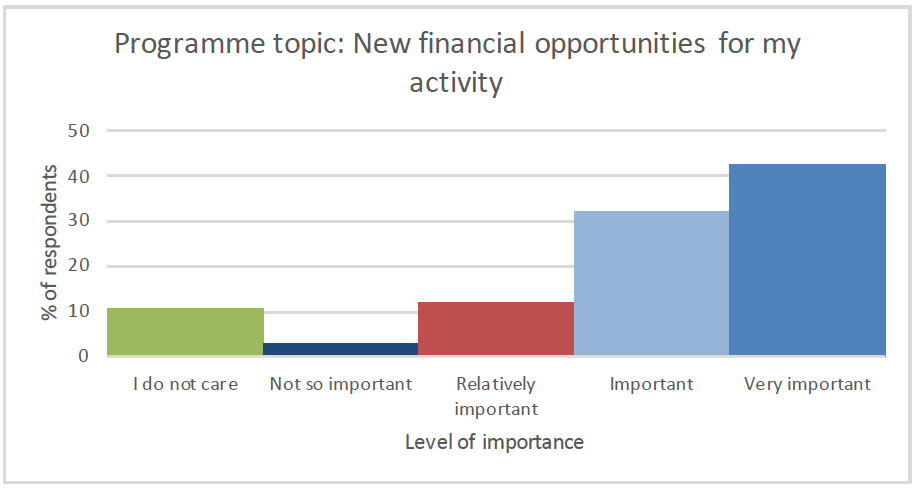
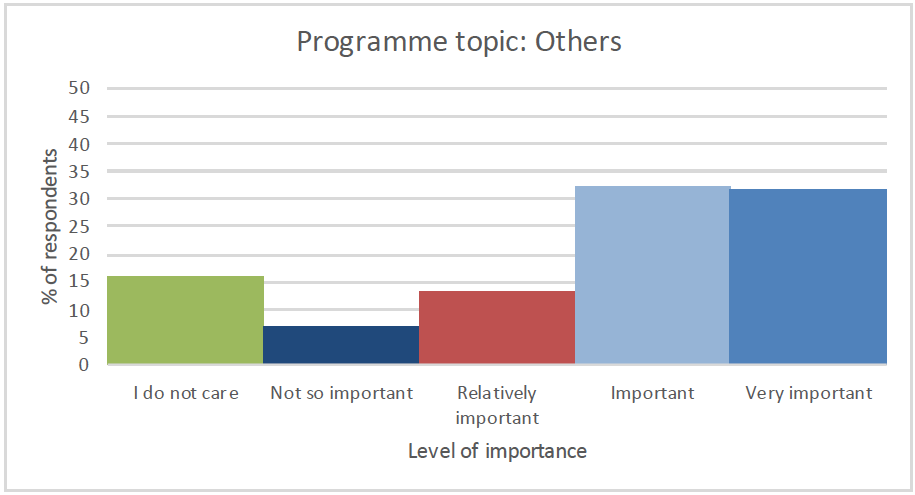
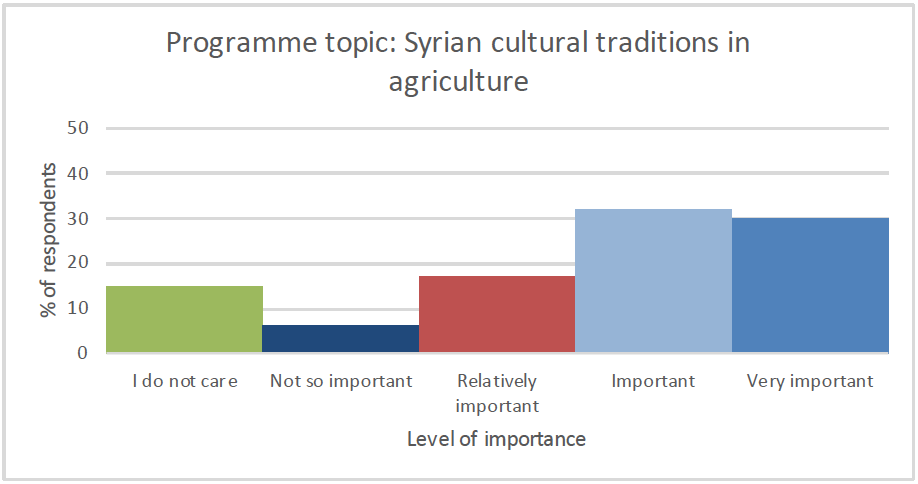
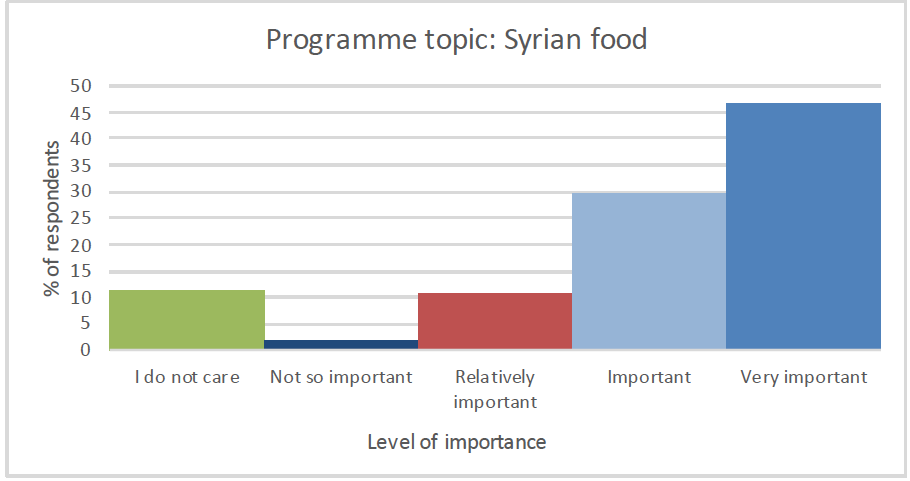
| For future episodes of AVS how important would it be to hear these topics discussed? | Programme topic: Sustainable techniques and agricultural inputs | Programme topic: How and where to sell my products | Programme topic: New financial opportunities for my activity | Programme topic: Legislation and rule applied in agriculture | Programme topic: Syrian food | Programme topic: Syrian cultural traditions in agriculture | Programme topic: Others |
|---|---|---|---|---|---|---|---|
| I do not care | 3.13 | 11.97 | 10.51 | 14.88 | 11.19 | 14.88 | 15.94 |
| Not so important | 2.35 | 5.59 | 2.91 | 6.15 | 1.9 | 6.15 | 6.89 |
| Relatively important | 14.43 | 14.09 | 11.97 | 16.33 | 10.63 | 17 | 13.19 |
| Important | 33.67 | 31.43 | 32.1 | 31.32 | 29.64 | 31.99 | 32.28 |
| Very important | 46.42 | 36.91 | 42.51 | 31.32 | 46.64 | 29.98 | 31.69 |
When asked who they’d like to share AVS with, the most positive response was for family members who work on farms with the respondents. This contributes to an evolving picture of close-knit groups working in agriculture using AVS as a communal focal point.
